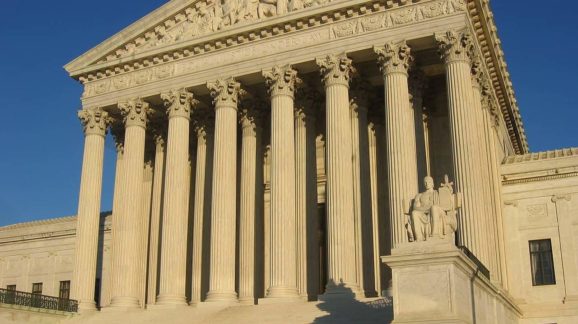The Supreme Court sends warning shot to NLRB

Only one of the Supreme Court’s cases this term dealt directly with the National Labor Relations Board (NLRB), but several addressed the broader question of how much authority executive branch agencies like it have. And what the Court said, case after case, is that federal agencies need to obey the will of the courts.
That’s bad news for the NLRB, a quasi-judicial agency that oversees unions and has been attempting to expand its authority through novel interpretations of federal law. The justices struck down only one specific claim by the NLRB, but the broader implications of several other rulings put many of the Board’s recent actions in jeopardy.
The case that directly involved the NLRB was Starbucks Corp. v. McKinney. An 8-1 majority of justices rejected the NLRB’s effort to get courts to accept the lower standard of proof it used to issue preliminary injunctions against employers. Businesses can now appeal these to outside courts, which may look at the oard’s injunctions more skeptically.
The following week, the justices ruled 6-3 in Securities and Exchange Commission (SEC) v. Jarksey that the executive branch agency could not deny a jury trial to a defendant despite the agency’s own judicial powers. The NLRB, like the SEC, has judicial powers, involving administrative law judges who answer to the Board.
Even more significantly, the justices ruled 6-3 in Loper Bright Enterprises v. Raimondo that courts were not bound by federal agencies’ interpretations of laws. That overturned a 1984 precedent called Chevron that had long been used to justify expansive rulemakings by agencies. The ruling was a particular stunner for the legal community. “The administrative state just died,” tweeted Harvard Law professor Laurence Tribe after the rule was announced.
Unions leaders saw Chevron’s demise as a significant blow to the NLRB. “This ruling paves the way for corporate challenges to the actions of the Occupational Safety and Health Administration, the National Labor Relations Board, and other agencies with a duty to protect workers’ lives and rights,” said AFL-CIO President Liz Shuler.
Consider, for example, the NLRB’s 2023 “joint employer” rulemaking, which vastly expanded corporate legal liability. The joint employer rulemaking would allow one business to be held liable for workplace violations at another business. The previous rule required one business to have “direct control” over the other business, as in, say, a company using a subsidiary business. A 2023 rulemaking by the NLRB changed that to “indirect control,” a term of art with no clear definition. Under Chevron, outside courts would have been more likely to accept the NLRB’s claim that one business indirectly controlled another. That’s no longer the case, as a District Court ruling struck down the new rule earlier this year. The NLRB was reportedly considering a challenge. Without Chevron, they’re on much shakier ground.
Similarly, the current NLRB has pushed to designate virtually any comment by management not supportive of unionization as an unfair practice. It ruled that that Amazon chief executive officer Andy Jassy violated his workers’ rights when he told CNBC that “people are better off having direct connections with their managers.” The NLRB will now have to convince outside courts that this is a reasonable interpretation of the National Labor Relations Act.
Overturning Chevron may also impact decisions by the NLRB made after President Biden fired General Counsel Peter Robb, a Trump appointee. Robb’s firing was probably unconstitutional, a point one NLRB defendant made in a case challenging the authority of Robb’s replacement, then-acting General Counsel Peter Sung Ohr. A court dismissed the challenge to Ohr’s authority, ruling that Chevron prevented any such second-guessing of NLRB actions.
“This… is an opportunity for executive agencies to re-examine their role relative to Congress, and to return legislating to the people’s elected representatives,” Sen. Bill Cassidy (R-LA), top Republican on the Health, Education, Labor and Pensions Committee, said in a letter last week to NLRB Chairwoman Lauren McFerran.